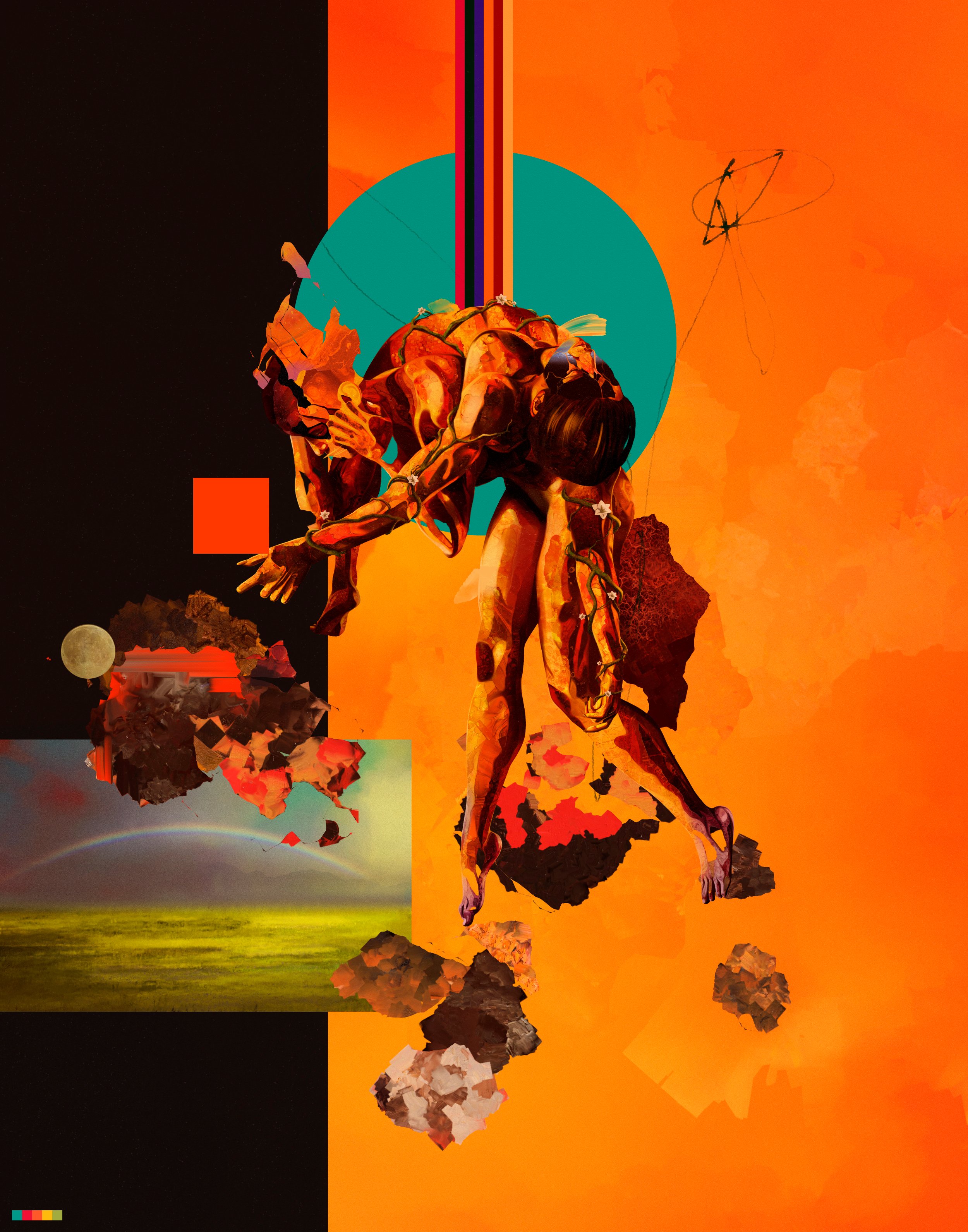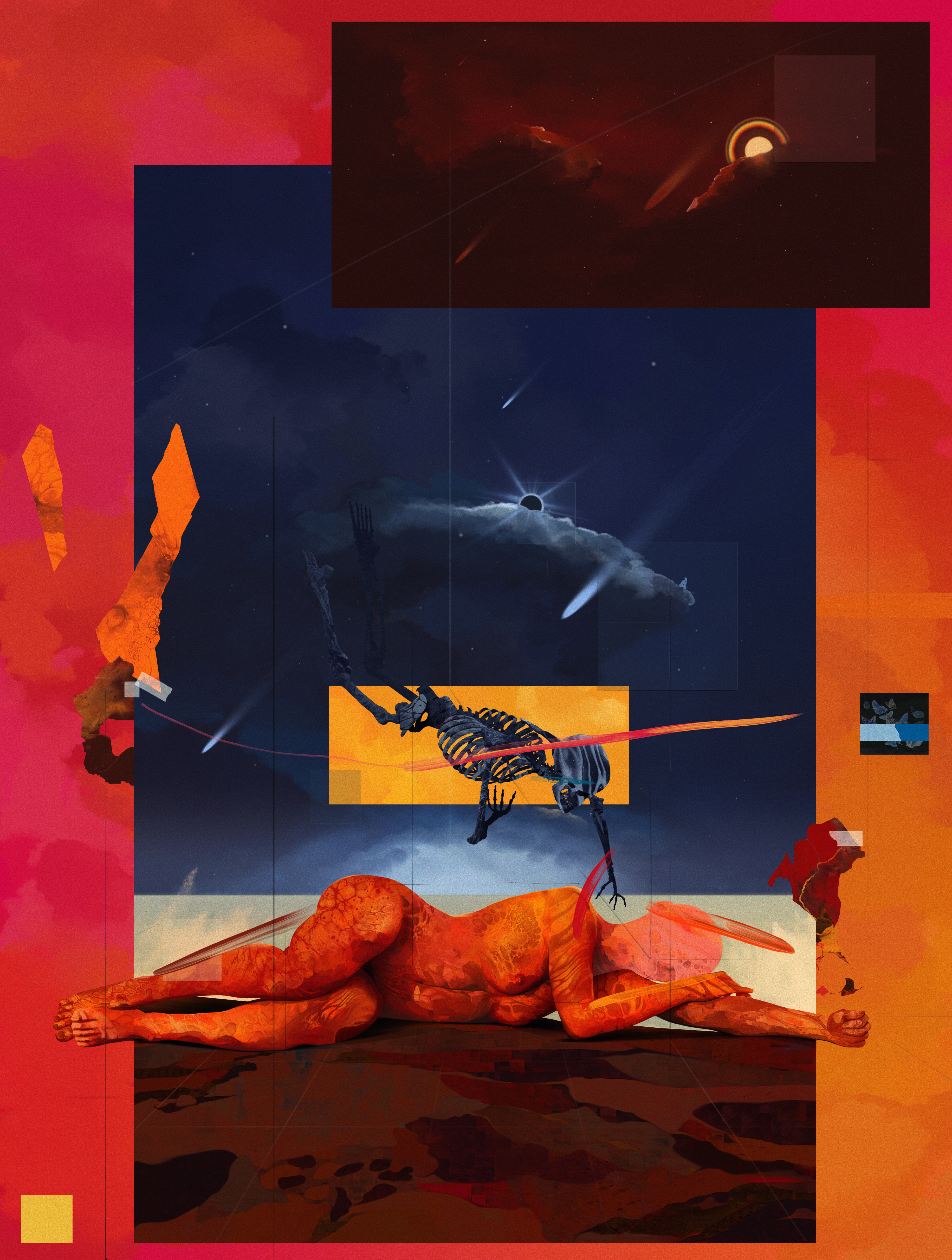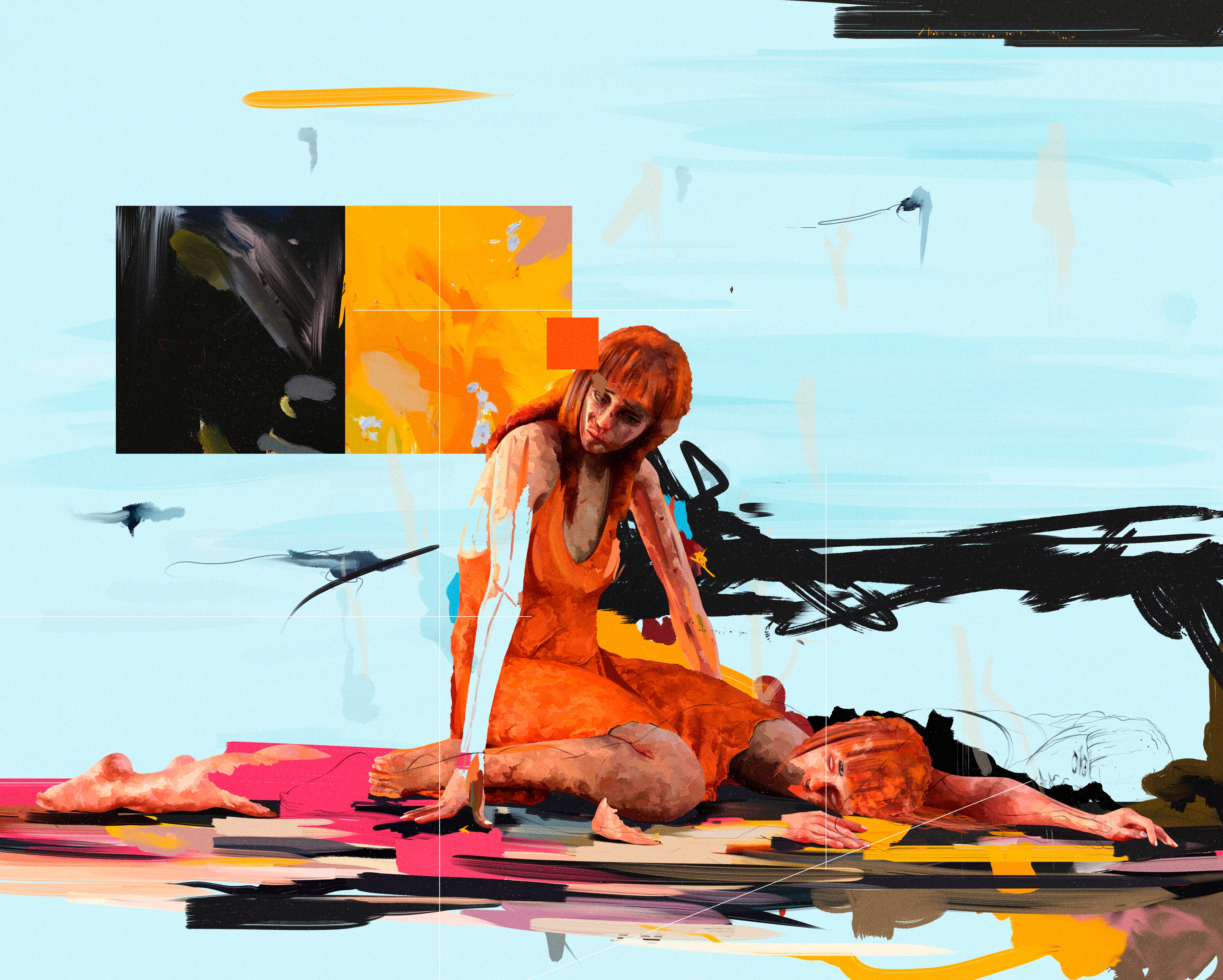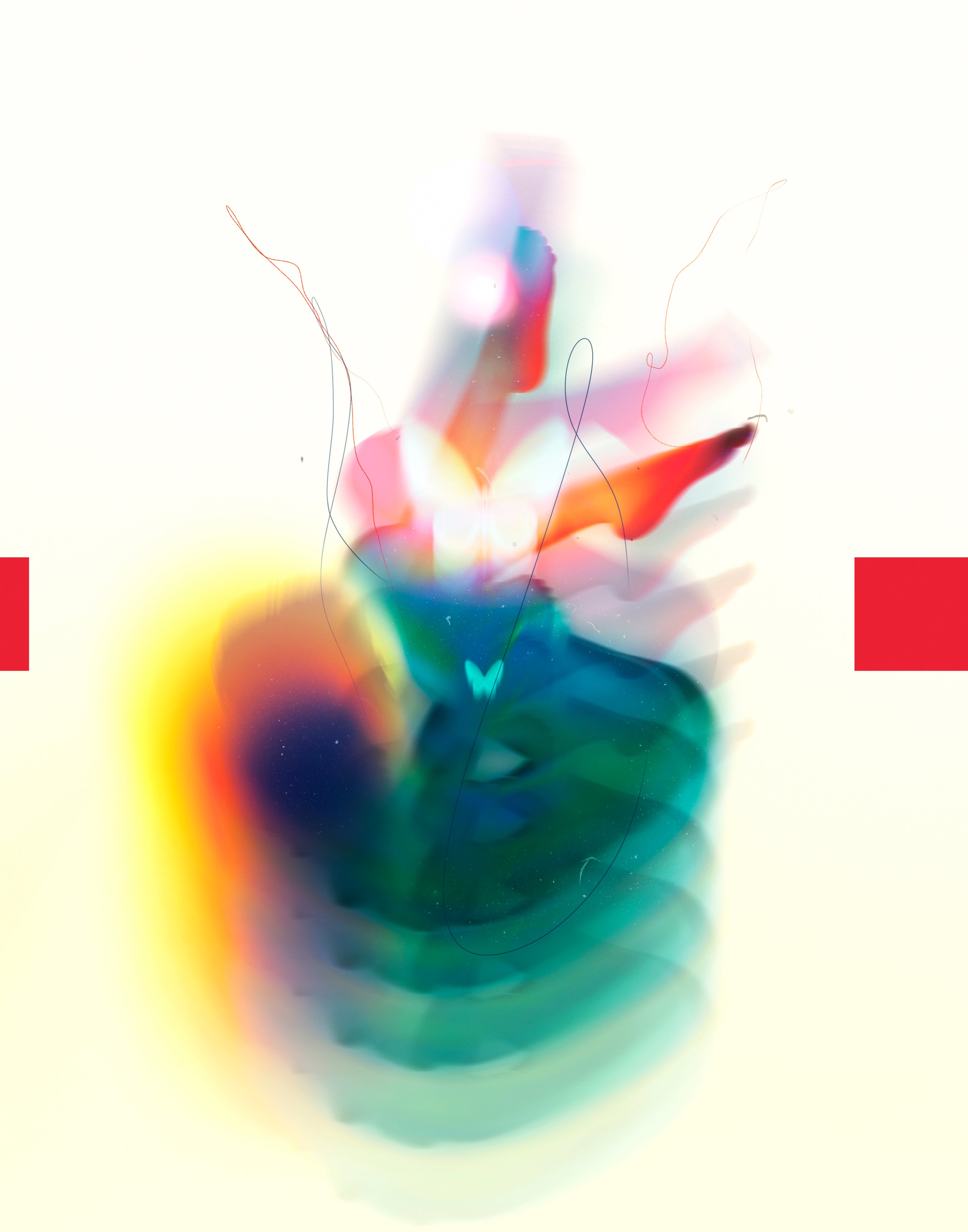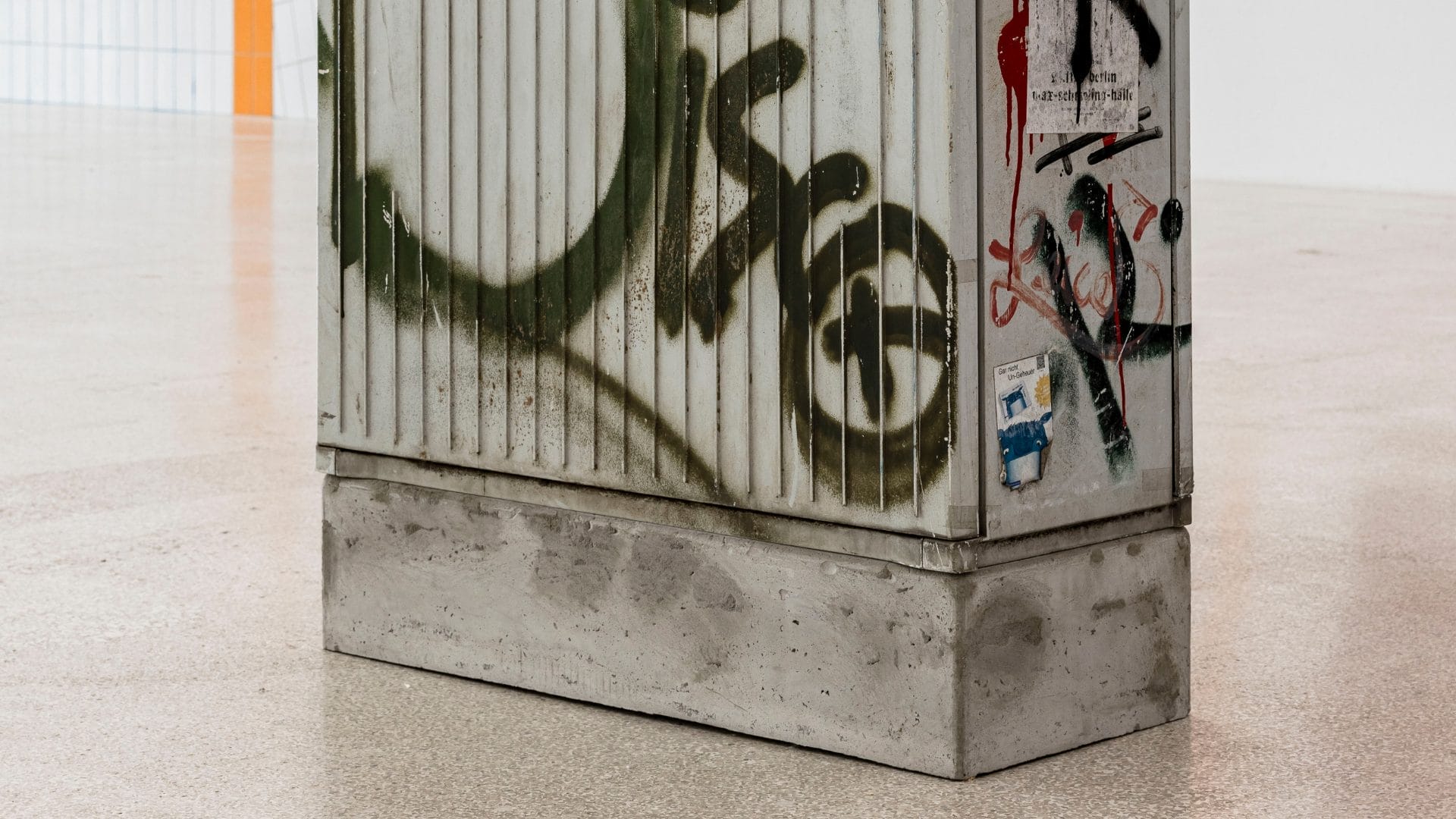
Etiene Crauss in Conversation with Fakewhale
Etiene Crauss, renowned for infusing digital canvases with deep emotional narratives, epitomizes the seamless fusion of graphic design skills and personal artistic expression.
In this conversation, we venture into his world, exploring how he masterfully blends emotive depth with digital techniques. We probe into his creative ethos, uncovering his approach to digital art and personal insights on the evolving digital art market. As well as shedding light on his views regarding the artist’s societal role and his future aspirations, offering a cohesive narrative that encapsulates Crauss’s unique position in today’s digital art landscape.
Fakewhale: In your transition from graphic design to personal artistry, was there a pivotal moment that catalyzed this shift? Can you describe the emotional journey that accompanied this change?
Etiene: I worked as a graphic designer doing commissions for years, making less than minimum wage. Sometimes, I’d spend weeks on a project for less than $50. Clients kept asking for changes all the time, and it was stressing me out.
The breaking point came when I was working on this huge project, and the client wanted numerous changes. I was barely getting any sleep, and it was pushing me toward burnout. That’s when I decided to drop the project, refund the client, and vowed never to work for others again, only for myself.
Initially, it felt like a relief—finally free to create whatever I wanted. But that feeling only lasted a few days because I realized I had no income. At 19, I had no clear life plan. I thought about going to university to study graphic design, but my ego (thankfully) held me back. I told my parents I already knew everything they’d teach me.
I went through a bit of a rough patch, seeing everyone around me doing well and earning a stable income. However, I kept posting my art, and luckily, a once-in-a-lifetime opportunity came my way. All the effort and belief I put into myself and my art paid off.
Fakewhale: Your work engages deeply with the labyrinth of human emotions. How do you conceptualize the relationship between art and emotion in your creative philosophy?
Etiene: My art is all about emotions. It’s the backbone of everything I create. Each piece is inspired by events that happened in my life—both good and bad. Whether it’s dealing with traumas, enjoying good times, or getting through heartbreaks, it’s all in there.
I try to turn those feelings into a visual form. The goal is for people who’ve been through similar stuff to look at it and feel a connection, and find some comfort in knowing they’re not alone in their experiences. And it’s therapeutic for me too. Turning those bottled-up feelings into something tangible is what got me into art in the first place.
Fakewhale: Can you walk us through your process of creating a piece from conception to completion, particularly focusing on how you leverage digital tools to convey complex emotions?
Etiene: It usually begins with random thoughts or dreams. I like creating art that reflects how I’m feeling or things I’ve been through. Once I have an idea, I set up a scene and take pictures for reference. My girlfriend often helps by being a model, so it’s like directing a little photo shoot with the set, clothes, and poses.
After taking all the pics, I use Photoshop to blend everything together and make the final reference. Then, I switch to Procreate and draw it by looking at the reference on a screen. The fun part is painting in Photoshop, adding colors and depth. Finally, I like to print it in a big size to see how it’d look hanging on a wall.
Fakewhale: Your pieces often tell a story or convey deep-seated feelings. How do you decide on the symbols and narratives that become the focus of your work?
Etiene: Storytelling is a crucial part of what I do. I see my art as a snapshot of something much larger—an instant frozen in time. To kickstart my creative process, I create a mood board filled with artworks from artists I admire. It’s like a visual brainstorming session that keeps my creativity flowing. I often find inspiration by looking at other pieces; it’s a way to refresh my mind and constantly generate new ideas while I work.
I don’t overthink what to include in my art; I go with a gut feeling of “that might work.” If something feels off, my eyes guide me—I either remove it or find a better spot for it. That’s how I approach composition.
Fakewhale: Amidst an art world where market values can be volatile, how do you balance staying true to your artistic vision with the economic realities of selling art, especially in the NFT market?
Etiene: Making art for the joy of it and creating art to make a living are two quite different things. It’s genuinely tough to stay true to your artistic vision in a space where there’s constant pressure to sell your art for more money. I went through a challenging time, feeling pretty down and anxious about it, but thankfully, I managed to push through.
In my experience, the crucial thing is curating your collectors. If you have a collector’s base who genuinely love your art and support you no matter what financially, that’s when you can create and live off art driven by passion, not just as a product someone else is selling.
Fakewhale: Considering your art traverses diverse emotional terrains, what responsibilities do you feel as an artist towards society, and how do you envision your work sparking dialogues within the collective cultural narrative?
Etiene: Personally, I feel a responsibility to shed light on mental health issues through my art. I’ve been in that space where I felt voiceless, without a shoulder to lean on. So, maybe through my art, I can be that support for others out there. Additionally, I aim to bring attention to independent emerging artists from developing countries like myself. It seems to me that they don’t always get the same chances as artists from more privileged places.
I hope my art triggers conversations about mental health, encouraging more people to express themselves through some form of art because of what I create.
Fakewhale: Reflecting on your artistic journey, how has the act of creation influenced your personal evolution, and what profound insights have you acquired along the way?
Etiene: Creation has been a real lifesaver for me in so many ways. It’s been my compass for navigating through my feelings, helping me understand things on a deeper level. It’s not just about making art; it’s brought discipline into my life, which even extended to taking better care of my physical health. Plus, it’s been a game-changer for my mental well-being. Instead of keeping those feelings bottled up, I found a way to channel them through art, turning it into a therapeutic escape.
Fakewhale: As we look to the future, what new horizons are you excited to explore in your art? Are there any specific projects, ideas, or collaborations you’re looking forward to that you can share with us?
Etiene: As a young artist just starting my journey, I’m bursting with aspirations. There’s this eagerness to explore various artistic realms, from sculpting and creating tangible art to diving into performance art and fashion. I’m not one to be confined to the digital space forever. Lately, I’ve even pondered delving into the realm of AI to assist in crafting my references.
When it comes to future projects, my dreams are set on expanding the scope of solo exhibitions. I recently had the opportunity to showcase my work with Valuart, and the experience was beyond words. Now, I crave more—more extensive, intricate exhibitions, each with its own theme, showcasing new creations, and so much more. It’s undeniably a significant career goal for me!
fakewhale
Founded in 2021, Fakewhale advocates the digital art market's evolution. Viewing NFT technology as a container for art, and leveraging the expansive scope of digital culture, Fakewhale strives to shape a new ecosystem in which art and technology become the starting point, rather than the final destination.
You may also like
Sasha Stiles in Conversation with Fakewhale
In this conversation with Fakewhale, Sasha Stiles, a first-generation Kalmyk-American poet, artist,
BODY | FW CROSS
An Exploration of the Human Canvas: Fakewhale Cross presents BODY On June 7th, 2023 Fakewhale presen
Graffiti. From the Spray Paintings & Underground to the Museion
Discussing graffiti in a museum context can be uncomfortable and unsettling. This is due to the deli
FW LOG is a curated media platform investigating the junction point between technology and art. It provides in-depth insights through the Fakewhale ecosystem, featuring the latest industry news, comprehensive curation, interviews, show spotlights and trends shaping tomorrow’s art market.
Explore the synergy between digital culture and the future of contemporary art.



